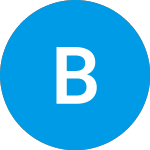 Burpzilla
20 년 전
Burpzilla
20 년 전
Blackboard Inc. Schedules Third Quarter Earnings Release and Conference Call
WASHINGTON, Oct. 26 /PRNewswire-FirstCall/ -- Blackboard Inc. (Nasdaq: BBBB) announced today that it will hold a conference call on Tuesday, November 9, 2004 at 5:00 p.m. Eastern (2:00 p.m. Pacific) to discuss its third quarter financial results. The Company will release its financial results for the 2004 third quarter ended September 30, 2004 after the market closes on the same day. The conference call will be led by Matthew Pittinsky, Chairman; Michael Chasen, President and CEO; and Peter Repetti, CFO.
Blackboard will broadcast the conference call live over the Internet. Interested parties can access the webcast through the Investor Relations section of the Company's Web site at http://investor.blackboard.com. Please access the Web site at least 15 minutes prior to the start of the call to register, download and install any necessary software.
A replay of the call will be available via telephone from approximately 8:00 p.m. Eastern (5:00 p.m. Pacific) on November 9, 2004 until 8:00 p.m. Eastern (5:00 p.m. Pacific) on November 16, 2004. To listen to the replay, participants in the U.S. and Canada should dial 888-286-8010, and international participants should dial 617-801-6888. The conference ID for the replay is 33422188.
About Blackboard Inc.
Blackboard is a leading provider of enterprise software and services to the education industry. The company's product line consists of five software applications bundled in two suites, the Blackboard Academic Suite(TM) and the Blackboard Commerce Suite(TM). Blackboard's clients include colleges, universities, schools and other education providers, as well as textbook publishers and student-focused merchants that serve education providers and their students. Blackboard is headquartered in Washington, D.C., with offices and staff in North America, Europe and Asia.
 Burpzilla
20 년 전
Burpzilla
20 년 전
Blackboard just went public in June. This is from the Fool:
Blackboard's Screeching IPO
The Motley Fool Take
By Richard Gibbons
June 24, 2004
Last Friday, educational software provider Blackboard (Nasdaq: BBBB) had the second-most successful technology IPO this year, rising 43% on its first day of trading. Such enthusiasm begs the question of whether Blackboard is the next eBay (Nasdaq: EBAY) or Amazon.com (NYSE: AMZN), which followed leaps in their first few days of trading with even better long-term performance.
Blackboard's software addresses two educational markets. Its Academic Suite helps instructors create and manage Web-based course materials while its Commerce Suite supports campus-related transactions, such as meal planning administration and textbook purchasing. These businesses have some attractive attributes.
Web-based learning software is now considered critical at most educational institutions. The software is valuable not only to improve instruction, but also to provide a competitive advantage when recruiting students. Online software is also particularly suited for distance education. This is noteworthy because distance-education courses are run at a profit at many colleges, unlike classroom courses. Thus, software that can improve distance education and potentially increase profits holds considerable appeal to this market.
Another great characteristic of the business is that there are significant costs to switching from one software package to another. Faculty and system administrators have to learn how to use and maintain the new system. Then, all content that was generated for the previous system, including syllabi, documents, assignments, and test questions, would have to be migrated to the new system. Since such a migration is typically a complicated and tedious task, customers have considerable motivation to stick with a given solution. Consequently, Blackboard has a nice moat against competitors and the potential to raise prices as the product becomes indispensable to customers.
Despite its appeals, there are several reasons to be cautious of Blackboard, though. First, it has a strong competitor in WebCT. The privately owned company is roughly the same size as Blackboard, and the same moat that discourages customers from leaving Blackboard will hinder Blackboard's efforts to poach customers from WebCT.
Second, Blackboard's primary customers, colleges, are, overall, quite poor compared to corporations. This makes it more difficult to expand the market and generate incremental revenue by selling expensive add-ons. Companies that have done well in the educational space, like the Apollo Group (Nasdaq: APOL), have succeeded by focusing on private education, but this is only a fraction of Blackboard's market. Students, a potential secondary market, are also poor and unlikely to pay up. Yet neither Blackboard nor WebCT have been able to sell to the more lucrative corporate space.
A third cause for wariness is valuation. On an earnings basis, Blackboard's about break-even, so it's necessary to look at other metrics. Free cash flow is one of the primary criteria that Tom Gardner uses to select stocks in his Hidden Gems newsletter, and at a multiple in the mid-30s, Blackboard doesn't make the grade. Blackboard's 5.5 price-to-sales ratio is close to Oracle's (Nasdaq: ORCL) 5.7 and less than Microsoft's (Nasdaq: MSFT) 8.6, but seems expensive compared to the software industry's average of 2.
Investors might be hoping that Blackboard grows into its relatively high valuation, or they're simply valuing it in line with other pricey higher education stocks. However, at this price, potential investors should be careful, lest they be taught a lesson about the risks of expensive IPOs.
Fool contributor Richard Gibbons does not own any securities mentioned in this report.

 MONEYMADE
14 년 전
MONEYMADE
14 년 전
 P K G
17 년 전
P K G
17 년 전
 Burpzilla
20 년 전
Burpzilla
20 년 전
 Burpzilla
20 년 전
Burpzilla
20 년 전
 Burpzilla
20 년 전
Burpzilla
20 년 전
 Burpzilla
20 년 전
Burpzilla
20 년 전